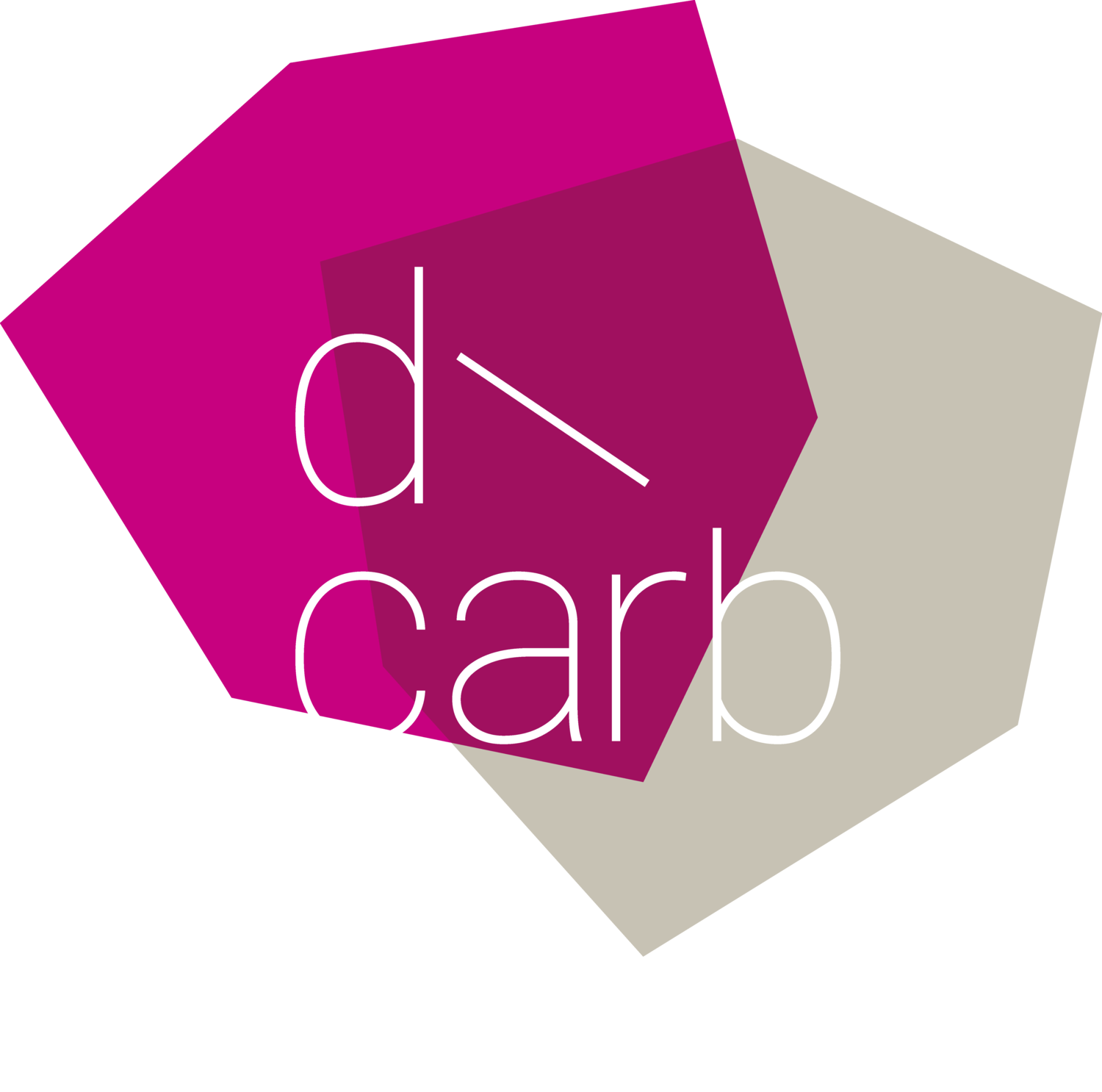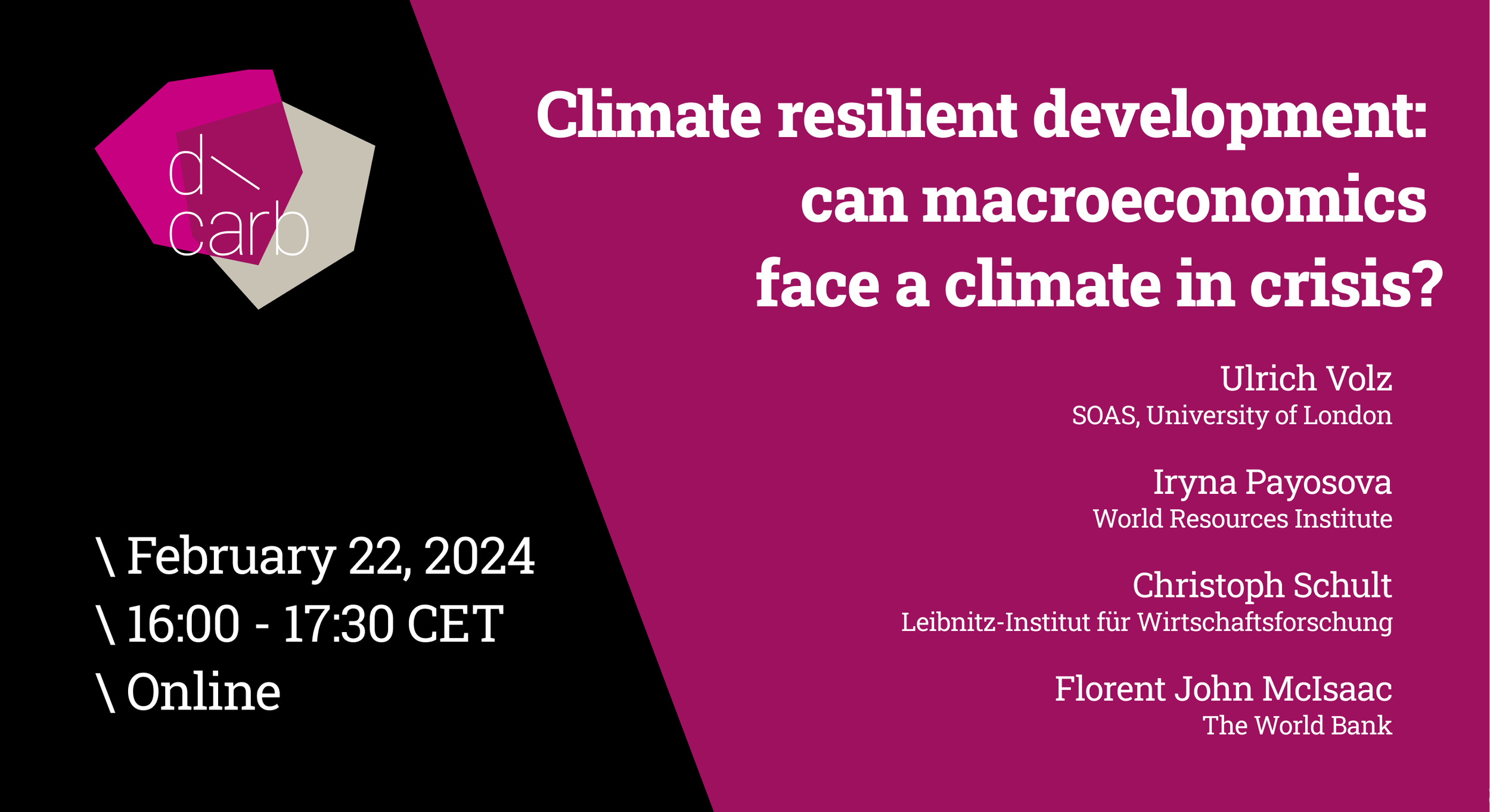
Climate resilient development: Can macroeconomics face a climate in crisis?
Online
Event description
As the devastating impacts of climate change are increasing, the need for adaptation is more urgent than ever - especially in the Global South. But how can one plan for climate justice in practice? Analytical tools to help decide where and how to invest most efficiently are key for long-term climate resilience. Understanding the aggregate economic impacts of climate change more systematically is an important step in this direction.
Climate-sensitive macroeconomic modeling will be a critical tool in this context. It could help to understand the impacts of climate change on national economies, and analyze economic vulnerabilities and long-term welfare effects. Further, it could help avoid maladaptation through efficient cross-sectoral and long-term planning. But is the macroeconomic discipline stepping up to this challenge?
Join us for our webinar, in which we will discuss these and more questions with leading experts in the field:
What is the added value of climate sensitive macroeconomic modelling?
Where is climate-sensitive macroeconomics at, and where is more work needed?
How could macroeconomic modeling tools be made more readily available to developing and emerging economies where impacts are most pronounced but analytical resources are often limited?
This webinar is organised in collaboration with the Deutsche Gesellschaft für Internationale Zusammenarbeit (GIZ) global project on Policy Advice for Climate-Resilient Economic Development (CRED).
Keynote Speakers
Ulrich Volz, PhD is Professor of Economics and Director of the Centre for Sustainable Finance at SOAS, University of London. He is also a Senior Research Fellow at the German Institute of Development and Sustainability (IDOS), Visiting Professor at the LSE, and a Honorary Professor of Economics at the University of Leipzig. He has taught internationally and has held advisory roles for governments, central banks, international organisations and development agencies on matters of macroeconomic policy, sustainable finance and development. Ulrich has a leading role in numerous international initiatives to promote sustainable macroeconomics and sustainable finance, for example as the academic director of the University Network for Strengthening Macrofinancial Resilience to Climate and Environmental Change.
Iryna Payosova, PhD, is an Economist in the New Climate Economy Division of the World Resources Institute in Washington, DC. She holds a doctoral degree in Environmental and Energy Management from the George Washington University and an MSc degree in Agricultural and Resource Economics from the University of Arizona, as well as degrees in Biology, Economics, Environmental Science and Policy from the National University of “Kyiv-Mohyla Academy“, Kyiv, Ukraine. Before joining the WRI, Iryna has worked on climate and energy topics for the World Bank and the Environmental and Energy Studies Institute.
Discussants
Christoph Schult, PhD is a researcher in the macroeconomics department of the Leibniz-Institut für Wirtschaftsforschung Halle (IWH). In addition to his doctorate, Christoph holds a master’s degree from Humboldt-Universität zu Berlin and a bachelor’s degree from Martin Luther University Halle-Wittenberg. His research focuses on dynamic macroeconomics, forecasting, and energy economics.
Florent John McIsaac, PhD, is a senior economist at the World Bank. He has a decade of expertise in climate macroeconomic modeling across Africa, Asia, and Latin America. Florent earned his doctoral degree on Energy and Money within New Frameworks for Macro-dynamics from the University of Paris I Panthéon-Sorbonne. His research examines the repercussions of climate policy on global growth and financial stability through comprehensive macroeconomic analysis.

Enhancing international climate finance: moving beyond 100bn/year
One month after the conclusion of COP28, we want to discuss the bottlenecks in international climate finance and their underlying root causes.

Frankfurt meets Paris: how central bankers can help save the climate
What are the tools that the ECB aims to use to tackle climate change? With leading experts in the field, we will discuss these questions and explore how the ECB could support green investments despite high inflation.

Money Talks: Finance Goes Green - Will it Succeed?
Fighting global warming and strategically restructuring our economic system requires a massive investment of financial capital. There is a huge “green investment gap”, and even in the case that enough financial capital is provided, in which form should this be done? In this webinar, we have invited leading experts to discuss how finance can best play its role in driving change and avoiding greenwashing. We will explore risk and asset pricing, time horizons and information, and what barriers to change exist.

Decarbonizing the European Union: who will pay the bill?
The European Union has decided to become climate-neutral by 2050, which would make it the first climate-neutral continent in the world. However, the member states have different abilities to finance the public investments needed to fund this green transition. The pandemic has even increased these differences. The big question looming over the Union’s plans is: who will pay for it, and how?


